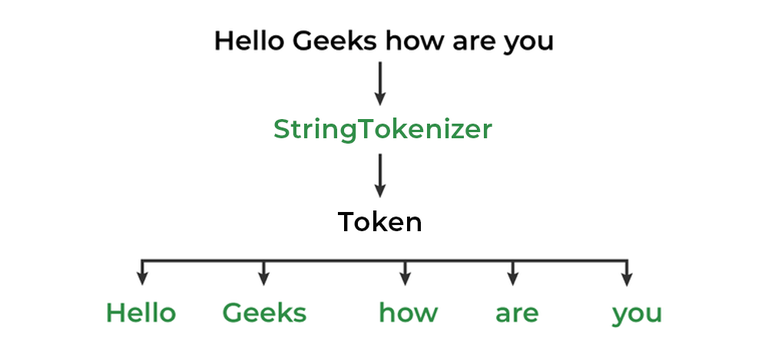Why Are Strings Immutable in Java? Necessary Understanding for Developers
Checking Out the Advantages of Unalterable Strings in Modern Shows Paradigms
In the world of modern programming standards, the concept of unalterable strings stands as a keystone of durable software program growth. The benefits they provide go beyond plain comfort; they fundamentally modify the means data is handled within applications. By adopting unalterable strings, developers can ensure boosted information integrity, improved thread security, streamlined debugging processes, increased safety and security actions, and reliable efficiency optimization. These benefits offer as a testimony to the profound impact that embracing immutability can carry the dependability and efficiency of software program systems.
Boosted Data Integrity

By protecting against the modification of string items, immutability gets rid of the threat of unintentional changes to the data they hold. This not only enhances the safety of the information however also enhances the integrity of the code that relies on these strings.
Immutability additionally sustains more secure multithreading atmospheres, as concurrent accessibility to immutable strings does not position the danger of data corruption with synchronised modifications. This residential or commercial property simplifies the process of managing strings in parallel programming situations.
In significance, immutability functions as a safety shield around the information saved within strings, boosting their honesty by making sure that when defined, their worths remain unchanged throughout the program's execution.

Improved String Safety
Unalterable strings improve the string safety of programs by ensuring that once a string item is created, its worth can not be changed. This building removes the threat of simultaneous strings attempting to change the exact same string simultaneously, which could bring about data corruption or irregular states in the program - Why are strings immutable in Java?. In a multi-threaded atmosphere, where several strings accessibility and manipulate information simultaneously, the immutability of strings gives a level of security by assuring that the data stays unchanged throughout its lifecycle
Simplified Debugging Procedures
Given the enhanced thread security helped with by immutable strings, a significant benefit occurs in the realm of simplified debugging processes. Immutable strings, once developed, can not be altered, making it simpler to trace the flow of information and identify the source of bugs in a program. This immutability guarantees that strings stay consistent throughout the execution of the program, reducing the likelihood of unforeseen changes that can result in mistakes.
When debugging with mutable strings, designers usually experience issues where a string's value is customized inadvertently, making it testing to pinpoint the origin of an insect. Nevertheless, with unalterable strings, the data continues to be the same, allowing programmers to concentrate on analyzing the actual reasoning of the code rather than tracking down where and when a string was customized incorrectly.
Additionally, immutable strings streamline the debugging procedure by enabling less complicated recreation of pests. Given that unalterable strings do not change state, designers can recreate and examine bugs better, bring about quicker identification and resolution of issues within description the codebase. This structured debugging process ultimately adds to greater software program high quality and enhanced overall development efficiency.

Enhanced Safety And Security Actions
Enhancing information defense and fortifying system integrity, the use of unalterable strings in software application applications adds dramatically to enhanced protection procedures. Unalterable strings also play a vital duty in protecting against typical safety vulnerabilities such as buffer overflows and SQL injection attacks, as attempts to adjust string information at runtime are naturally restricted.
Moreover, the immutability of strings improves the content predictability of program habits, making it easier to validate inputs and avoid unexpected changes that could jeopardize security. This predictability simplifies the procedure of auditing and verifying code, enabling designers to determine possible security loopholes a lot more effectively. Overall, integrating unalterable strings into software application development techniques not only enhances the effectiveness and dependability of applications yet also enhances their resilience versus safety and security risks.
Efficient Performance Optimization
Structure upon the structure of boosted protection measures attained via the application of unalterable strings, an essential element to consider in software program advancement is efficient performance optimization. When handling mutable strings, procedures like concatenation or substring production usually lead to the production of brand-new string objects, bring about memory expenses and enhanced handling time. Nonetheless, with unalterable strings, these procedures can be optimized to enhance performance. By enabling strings to stay consistent and unchangeable, immutable strings assist in better memory monitoring and caching possibilities, eventually boosting the overall effectiveness of the software program.
Because immutable strings can not be modified when created, they can be shared throughout strings without the risk of unexpected changes, decreasing the demand for synchronization systems and boosting concurrency. Unalterable strings go to this site streamline debugging procedures as programmers can trust that a string's worth will certainly continue to be constant throughout the program's implementation, removing potential errors caused by mutable state changes.
Final Thought
To conclude, the advantages of utilizing immutable strings in contemporary shows standards can not be overemphasized. Boosted data honesty, boosted string security, simplified debugging processes, boosted protection actions, and efficient efficiency optimization all add to the total effectiveness of programs tasks. By including immutable strings into shows methods, designers can benefit from an extra robust and trustworthy codebase.
Immutability, a key feature of strings in shows languages such as Java and Python, makes sure that when a string item is created, it can not be altered or modified.Immutable strings enhance the string safety and security of programs by ensuring that as soon as a string item is developed, its worth can not be customized. Unalterable strings likewise play an important function in protecting against typical safety and security susceptabilities such as buffer overflows and SQL injection strikes, as attempts to manipulate string information at runtime are naturally restricted.
By allowing strings to remain unchangeable and consistent, immutable strings facilitate better memory monitoring and caching possibilities, ultimately enhancing the general efficiency of the software application.
Unalterable strings streamline debugging procedures as developers can rely on that a string's worth will certainly stay regular throughout the program's implementation, getting rid of potential mistakes created by mutable state changes.